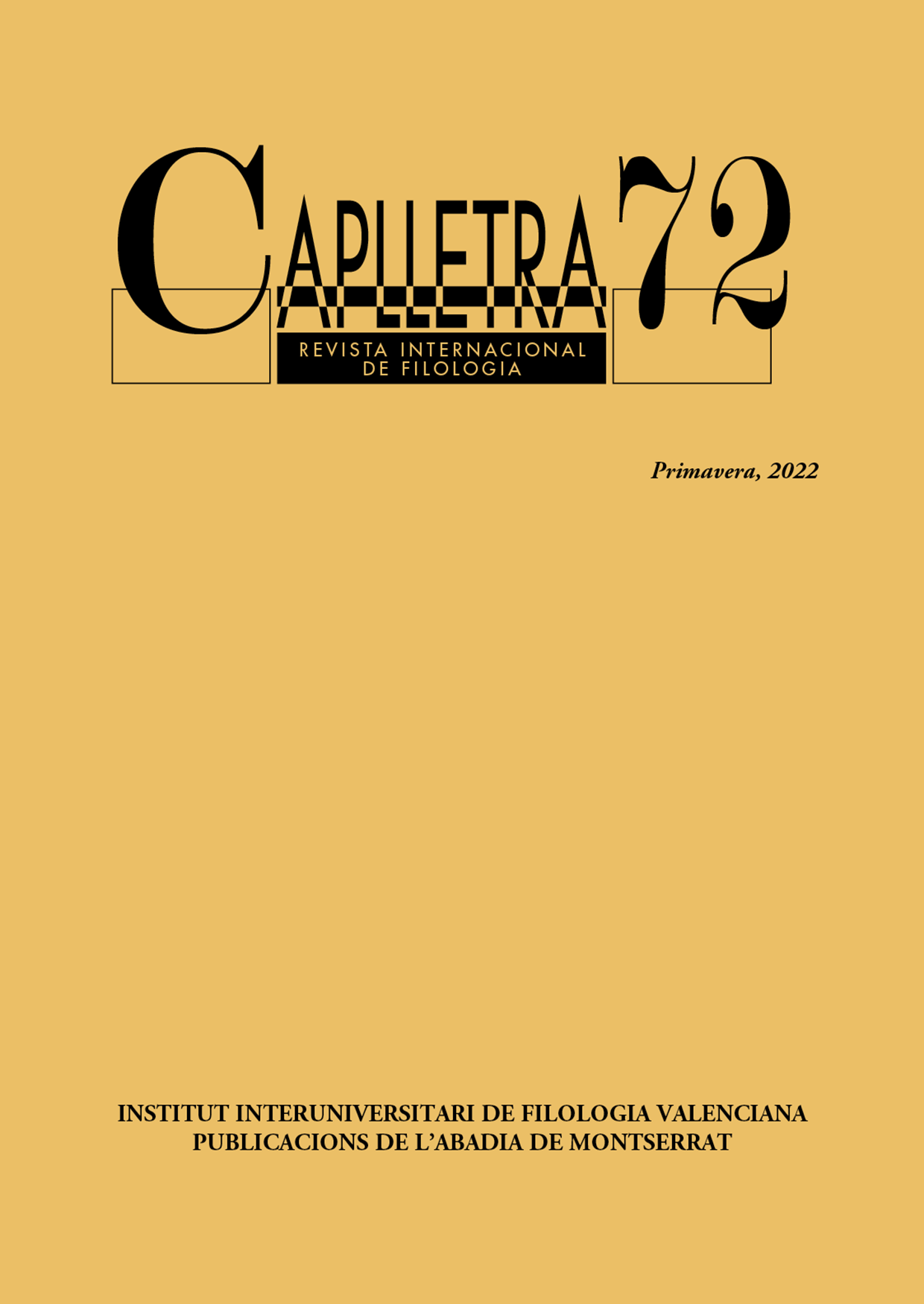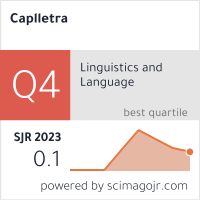«Ars orandi»: Ramon Llull’s «Ars compendiosa Dei»
DOI:
https://doi.org/10.7203/caplletra.72.22969Palabras clave:
Prayer, Logic, Rhetoric, (Divine) Justice and Mercy, Antithesis Resumen
Resumen
Using Barbara H. Jaye’s brief survey of the artes orandi as a starting point, I examine Ramon Llull’s Ars compendiosa Dei (May 1308) in the light of the definition she provides of the genre. Though I do not share Jaye’s belief that the ACD is the sole text within Llull’s corpus which might qualify as such an ars, I nevertheless carry out a kind of «thought experiment» on the basis of her insights. I incorporate into my own account consideration of certain Aristotelian logical constructs (e.g. theories of antithesis) to show how these (and other) determinants interact with Christian beliefs in their explication of the relations holding between divine mercy and justice and their human counterparts. Penitent humanity finds itself situated within precisely such a network of relations in respect of a just and merciful God. At the heart of this relationship lies the bidirectional discourse between God and humanity, articulated primordially in the former’s address to the latter and subsequently in the latter’s response as orant-contemplative.
 Descargas
Descargas
Descargas
Publicado
Cómo citar
-
Resumen338
-
PDF 464
Número
Sección
Licencia
El autor o autora que dirija un trabajo a la redacción de Caplletra para ser publicado tiene que ser la persona titular legítima de los derechos de explotación. La legitimación para la publicación del trabajo tiene que incluir también las imágenes, las tablas, los gráficos y otros materiales que puedan complementar el texto, con independencia de si es su autor o autora.
Copyright. Al publicar el trabajo en la revista, el autor o autora cede a Caplletra. Revista Internacional de Filologia los derechos de explotación (reproducción, distribución y comunicación pública), tanto para la edición impresa en papel como para la versión electrónica.
Todos los trabajos publicados en Caplletra se encuentran bajo una licencia Creative Commons del tipo Reconocimiento-NoComercial-SinObraDerivada 4.0.
RESPONSABILIDAD
Caplletra. Revista Internacional de Filologia no se identifica necesariamente con los puntos de vista sostenidos en los trabajos que publica.Caplletra. Revista Internacional de Filologia declina toda responsabilidad derivada de cualquier vulneración eventual de los derechos de propiedad intelectual que pudiera ser llevada a cabo por los autores o autoras.





